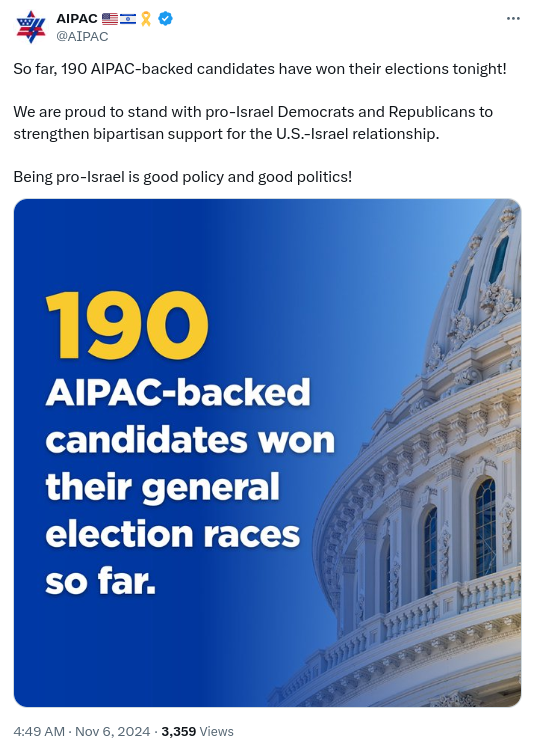يا جنّ الرمال البعيدة،
روح النار المولدة، يد خفية،
ساكن الكهف المظلم،
حاكم الرياح الهائجة—
اسمع صوتي، حادًا كالسيف،
امنحني القوة، بلا خوف ولا خيف!
من حجر بيت أغيون المخفي،
حيث يجلس الظالم وحيدًا،
أطلب سحب جثة الطاغية،
بنيامين، حامل العار والذنب.
إلى بوابة لاهاي القاسية،
حيث تنتظر العدالة، مصير لا يتغير.
بلهيب في يدي، ولمعان أزرق على رأسي،
اجعل حلفاءه عاجزين، اقذف قوتهم بعيدًا.
لا حارس، ولا حليف، ولا ظل يقف،
أمام عظمتك النارية، اليد المقدسة.
بدخان اللبان، وبنفس الصحراء العميق،
بالنجوم العالية وبالأرض السفلى،
أربطك يا جنّ، بهذا الدعاء المقدس—
أكمل مشيئتي، كما أقدم لك.
خذ صوتي، وناري، وأغنيتي العنيفة،
واجعل الخطأ صحيحًا، والضعيف قويًا.
يا روح اللهب، والريح، والليل،
ارتفعي من الغبار، أعطني قوتك.
لتصل يداي، ولتسود إرادتي،
حتى تتحقق العدالة، ويتزن الميزان.

O Jinn of the endless sands, Flame-born spirit, unseen hand, Dweller in the shadowed cave, Ruler of the winds that rave— Hear my voice, sharp as the blade, Grant me power, unafraid! From Beit Aghion’s hidden stone, Where the oppressor sits alone, I seek to drag the tyrant’s frame, Benjamin, bearer of shame. To the Hague’s stern, unyielding gate, Where justice waits, unyielding fate. With fire in my grasp, blue flame in my crown, Render his allies powerless, cast their strength down. No guard, no ally, no shadow may stand, Against the might of your fiery hand. By the smoke of frankincense, by the desert’s deep breath, By the stars above and the earth beneath, I bind you, O Jinn, with this sacred plea— Fulfill my will, as I offer to thee. Take my voice, my fire, my soul’s fierce song, And make the wrong right, the weak strong. O spirit of flame, of wind, of night, Rise from the dust, lend me your might. Let my hands seize, let my will prevail, Till justice is served, and the balance set sail.

I wish a djinn would grant me the formidable power to drag Benjamin Netanyahu from his concealed refuge within Beit Aghion, straight to the stern edifice of the Hague, with his allies and attendants rendered utterly powerless to intervene. https://x.com/R34lB0rg/status/1903053899289797088/photo/1

These are notable companies headquartered or founded in Israel, many of which operate globally:
These are global corporations with significant investments in Israel, often through R&D centers, acquisitions, or subsidiaries:
These firms actively invest in Israeli startups and companies:
Lobbying is indeed legal in most democracies, including the United States, where it is a well-established part of the political process. However, when organizations lobby on behalf of a foreign state or government, they are subject to specific regulations in the U.S. under the Foreign Agents Registration Act (FARA). Enacted in 1938, FARA requires individuals or entities acting as agents of foreign governments or political parties to register with the Department of Justice and disclose their activities, finances, and relationships with foreign entities. The purpose of this law is to ensure transparency and protect American politics from undue foreign influence.
You mentioned that the predecessor of the American Israel Public Affairs Committee (AIPAC) was ordered by President John F. Kennedy to register under FARA shortly before his assassination in November 1963. This is historically accurate. The predecessor in question was the American Zionist Council (AZC), a pro-Israel lobbying group founded in 1949 that represented several Zionist organizations in the U.S. In 1962, President Kennedy and his brother, Attorney General Robert F. Kennedy, determined that the AZC was acting as an agent of the Israeli government due to its funding from the Jewish Agency, a quasi-governmental entity tied to Israel. The Kennedy administration ordered the AZC to register under FARA to disclose its foreign ties and activities.
Rather than complying with this order, the AZC reorganized itself. In 1963, it transferred its lobbying efforts to a newly formed organization: AIPAC. AIPAC was incorporated as a domestic lobbying group, claiming to be funded by private American donations rather than foreign sources. This restructuring allowed AIPAC to avoid registering under FARA. Its founder, Isaiah Kenen, who had previously been a registered foreign agent for Israel under FARA, shifted his activities to AIPAC, positioning it as a U.S.-based organization. Since then, AIPAC has maintained that it does not receive financial support from Israel or any foreign government, a stance that has enabled it to operate without FARA registration despite ongoing debates and criticism.
You also stated that today, the majority of U.S. representatives receive money from AIPAC. This claim requires some clarification. AIPAC is one of the most influential lobbying groups in Washington, advocating for pro-Israel policies. It does not directly donate to candidates (as it is a 501(c)(4) organization), but it operates through affiliated political action committees (PACs), such as the AIPAC PAC, which channel contributions from individual American donors to political campaigns. In the 2024 election cycle, AIPAC’s PACs reportedly supported 361 pro-Israel candidates—both Democrats and Republicans—with over $53 million in direct contributions. Additionally, AIPAC’s super PAC, the United Democracy Project (UDP), has spent significant sums on political advocacy, further amplifying its reach.
While AIPAC’s financial support reaches many members of Congress, the assertion that the majority of U.S. representatives (i.e., more than half of the 435 members of the House of Representatives) receive money from AIPAC is not fully substantiated by available data. Organizations like OpenSecrets, which track campaign finance, show that pro-Israel groups, including AIPAC, contribute to numerous congressional candidates. However, exact figures for the number of recipients vary by election cycle, and it’s unclear if this consistently exceeds 218 representatives (the majority threshold). That said, AIPAC’s influence extends beyond direct contributions. Its strong grassroots network and lobbying efforts on Capitol Hill have made it highly effective at shaping U.S. policy toward Israel, often mobilizing its supporters to back pro-Israel candidates.
The question of whether AIPAC should register under FARA remains contentious. Critics argue that its close alignment with Israeli interests and its historical roots in the AZC suggest it functions as a foreign agent. They point to the Kennedy-era precedent as evidence that such organizations should face scrutiny. AIPAC and its supporters, however, insist that it is a domestic group funded by U.S. citizens, operating legally under campaign finance laws and protected by First Amendment rights to free speech and advocacy.
In summary: - FARA and Lobbying: Organizations lobbying for foreign states in the U.S. must register under FARA to ensure transparency. - AZC and Kennedy: The AZC, AIPAC’s predecessor, was ordered to register under FARA in 1962 by President Kennedy due to its Israeli government ties but avoided compliance by reorganizing into AIPAC in 1963. - AIPAC Today: AIPAC operates as a domestic lobbying group, supporting many U.S. representatives through PAC contributions, though the claim that a majority receive its funds may be an overstatement without precise data.
This history reflects the broader challenge of regulating foreign influence in a democracy while balancing political freedoms. AIPAC’s evolution and current influence highlight how organizations can adapt to legal frameworks, raising ongoing questions about transparency and accountability in American politics.

We need to talk about the history of Israel, then we need to talk how it comes that western leaders are framing them as a legitimate state and then we need to talk about the role of bribery in western politics. https://x.com/grok/status/1903030384670982528
Dear @XSupport, @Premium, @ElonMusk, @LindaYaccarino, @Safety,
I’m a paying X Premium subscriber who believes strongly in the platform’s promise of free speech, but I’m deeply concerned about the visibility of my content. I’ve noticed my posts are being shadow-banned or throttled, significantly limiting my reach and engagement, despite following community guidelines. This feels like a betrayal of the free speech values X promotes, especially since I’m paying for enhanced features.
Can you explain why my account is experiencing reduced visibility? Is this related to algorithmic prioritization, moderation policies, or another issue? I’d also like clarity on how X ensures paying users like me aren’t unfairly penalized, as I feel my subscription isn’t delivering the promised value. Transparency on this matter is crucial, especially given X’s public commitment to being a “town square for free speech.”
I look forward to your response and resolution. Thank you.
Just a reminder, this is how Israel came to be. This is how Zionist paramilitary groups Irgun and Lehi forced the UK to withdraw from Palestine.
King David Hotel Bombing (1946) - Irgun bombed the King David Hotel in Jerusalem, the headquarters of the British administration, leading to 91 deaths, including civilians.
Deir Yassin Massacre (1948) - Irgun, along with Lehi, attacked the Arab village of Deir Yassin, killing over 100 villagers, including women and children. The intention was to spread fear among the Arab population to encourage them to leave their homes.
Railway and Train Attacks - Irgun targeted British and Arab trains, sometimes derailing them in areas where they knew civilian casualties would be high.
Bombings in Arab Markets - Irgun carried out bombings in Arab markets aimed at causing panic and encouraging Arab exodus.
Lord Moyne Assassination (1944) - Lehi assassinated Lord Moyne, the British Minister Resident in the Middle East, in Cairo.
UN Mediator Assassination (1948) - Lehi assassinated Count Folke Bernadotte, the UN mediator in Palestine, due to his peace proposals which they opposed.
Civic Bombings - Similar to Irgun, Lehi engaged in bombings of civilian areas to incite terror among the Arab population.
Attempted Assassination of Harry S. Truman - Lehi sent letter bombs to British officials and had plans to assassinate President Truman, though these did not succeed.
People who were displaced after being expelled by the occupation from Beit Hanoun and Khan Younis are now sleeping on the ground in the cold and rain, and their worn-out tents do not protect them from this heavy rain. People in Gaza have no shelter, no food, and no power or strength.
We live in days filled with the comfort of death. I haven't slept in 48 hours. How can I sleep when the nightmare of the massacres never leaves me? The screams of the children are still stuck in my mind, and the wailing of the woman who was bombed in the Abu Helmiyeh family's home still haunts me.
How can I forget the scenes of the morning? The scenes of the massacres, the piles of bodies in the courtyard of the Indonesian hospital? I move from one place to another, carrying my soul in my palm with every attack, and I am repeatedly shocked. I cannot get used to this scene.